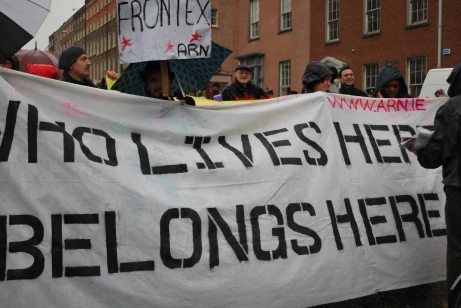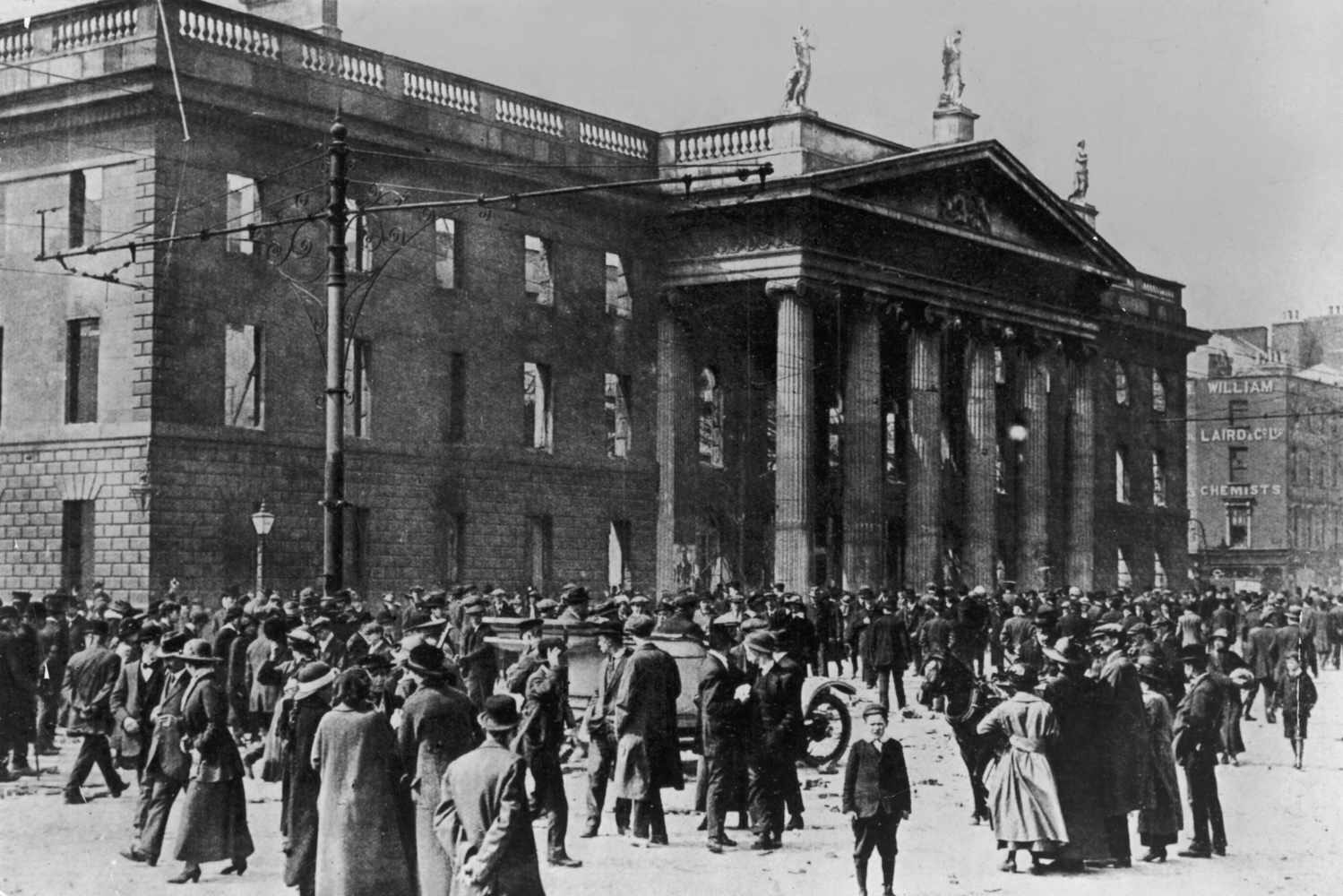The impact of immigration and multiculturalism on Irish society has brought about some unforeseen challenges that need to be addressed, writes Méadbh Ní Dhuinn.
The OECD Reviews of Migrant Education Ireland (2009, p. 9) describes how “Immigration is a relatively new phenomenon in Ireland. Between 8 and 10% of students in Irish schools have an immigrant background representing many countries, cultures and languages”.
Towards 2016: Ten-Year Framework Social Partnership Agreement, 2006-2015 advocates the need for a more inclusive, integrated education system. Within the framework it addresses the need for “increased provision for migrants at both primary and second-level” without reference to increased provision for non EU migrants accessing third level education. In addition the 2005 report ‘Planning for Diversity– The National Plan Against Racism 2005-2008’ “mandates development of a national intercultural education strategy, and advocates for an intercultural school environment”. However, the policy stipulates that frameworks and provisions for equal access to education can only be guaranteed up until the age of 18 with little or no policy frameworks highlighting or adhering to the provisions of providing non- EU migrant’s opportunities of obtaining equal access to higher education.
The Office of the Minister for Integration (2008, p.31) mandates that “efforts in education are critical to preparing immigrants, and particularly their descendants, to be more successful and more active participants in society”. For example, there is an “estimated 22,681 children born outside the EU registered in Irish secondary schools”. However, due to a lack of clear and comprehensive legislation many children of non EU migrants face barriers in the form of excessive student fees in accessing third level education. This remains an equality of access issue for migrant families who have made Ireland their home, have paid taxes and put down roots”. Equal access to education, at all levels, remains a key point of importance insofar as it “lies at the heart of the integration process.” (Migrant Education Access, 2012, p.1)
The barriers facing non-European migrant’s access to higher education is further impeded upon by the citizenship process. The implications of the residency stamp process is that many young, non-European migrants are unable to apply for financial assistance and third level funding putting them at a disadvantage and unequal footing to their Irish counterparts. Migrant Education Access Ireland (2012, p.2) states that “in essence we have an immigration system that never considered their (i.e. non-EU migrants) arrival in Ireland and a third level education system that is virtually inaccessible to them”.
Consequently, how can an inclusive, intercultural society be created in Ireland if we avoid the issue of non- EU migrant access and marginalization from third level institutes? Invalidating the right to educational access at the age of eighteen clearly distinguishes, excludes and restricts a non-European migrant’s ability to engage in public life on an equal footing. Indeed, there is a clear dichotomy between policy and practice insofar as the ‘Planning for Diversity– The National Plan Against Racism 2005-2008’ cites racism as
Any distinction, exclusion, restriction or preference based on race, colour, descent, or national or ethnic origin which has the purpose or effect of nullifying or impairing the recognition, enjoyment or exercise, on an equal footing, of human rights and fundamental freedoms in the political, economic, social, cultural or any other field of public life’. (Department of the Taoiseach, 2005, p.38)
The Migrants Rights Centre Ireland (2011, p7) cites two significant EU directives. Directive 2003/86/EC states that there is an entitlement to ‘access to education and vocational training’. Furthermore, directive 2003/109/EC mandates that when resident in an EU state, migrants should ‘enjoy equal treatment with nationals as regards to education and vocational training, recognition of qualifications and study grants.’ However, as of yet, Ireland has not adopted these directives which may suggest why there is such a gap in providing policy for non-EU migrants struggling to gain equal access to Ireland’s higher education system.
This issue is further perpetuated by the economic recession in Ireland whereby the dispersal of public services, including access to educational funding “will intensify pressures on service providers trying to protect services for less advantaged social groups in the face of increasing competition for ever scarcer resources”. (Archer, 2010, p.4) However, if the issues of first generation, non- EU migrants access to education is not dealt with swiftly and in an adequate manner we will have a situation where second, third and fourth generations will be dealing with the same issues of educational attainment being implemented in an exclusionary, unequal, two- tier system.
The issue of first generation non-EU migrants struggling to access higher education comes at a pivotal time in Irish history. There are a number of complex issues that interrelate including modern day class structures in Ireland, globalization, the status of Ireland as an EU state, increased immigration and multiculturalism within Ireland and the consequences of economic prosperity rapidly diving into economic depression and austerity. Therefore, we witness policy and public sectors struggling to adapt to new and emerging concerns and demands from society. In terms of education, the government and the educational institutes themselves are struggling to define their role in light of the challenges that they now face.
Bryan (2008, p47) outlines the struggles that Ireland has undergone in adapting to a multicultural society. Her argument reiterates with the obstacles facing first generation non–EU migrants whereby “intercultural discourse in the Irish context marginalises and constructs racialized minorities in deficit terms, positioning them as ‘other’ than Irish, as less Irish, or less than Irish”.
Ireland, as a post-colonial, peripheral European country has struggled to adapt to the demands of multiculturalism and this is very much evident within the Irish political and educational agenda. There is a constant tension between an Ireland which “rhetorically and symbolically ‘welcomes’ and celebrates cultural diversity” and an Ireland that inadequately address intercultural education in terms of implementing “policies and practices reinforcing the ‘otherness’ of minority students” (Bryan, 2008, p.54) which we have witnessed in the handling of first generation non-EU citizens trying to access higher education.
Never before in Irish history has it been so necessary to “place historically marginalized groups at the centre, rather than at the periphery of the intercultural debate” (Byran, 2008, p.56) Inquiry into the way in which non –EU migrants struggle to gain equal footing to higher education provides us with a key opportunity to assess the ways in which we can adapt to the challenges Ireland faces as a modernized and multicultural European state.
A decade later the objectives of the Zappone, 2003 report, issued on behalf of the Joint Equality and Human Rights Forum, have yet to be sufficiently implemented as a way in which to curtail inaccessibly and marginalization through the advocation and promotion of “strategies that are relevant to the situation, experience and identity of multiple identity groups. Such strategies include a focus on institutional policy and practice. They also include a focus on the wider equality framework, including the development and implementation of equality legislation, the collection and analysis of equality data and approaches to mainstreaming equality”.
For more information on this topic and for opportunities to get involved with the “Mind the Gap” campaign please visit the Migrant rights Centre Ireland website at http://www.mrci.ie
References
Archer, L. (2010) ‘’We raised it with the Head’: The educational practises of minority ethnic, middle class families’. [Online] Available at http://www.ahrc.ac.uk/ [Accessed 30th April 2013]
Bryan, A. (2008) ‘The co-articulation of national identity and interculturalism in the Irish curriculum: educating for democratic citizenship?’ London Review of Education, 6(1), 47-58.
Department of the Taoiseach (2005) Planning for Diversity– The National Plan Against Racism 2005-2008 [Online] Available at http://www.taoiseach.gov.ie/ [Accessed 25th April 2013]
Department of Taoiseach (2006), Towards 2016: Ten-Year Framework Social Partnership Agreement 2006-2015. [Online] Available at http://www.nccri.ie/ [Accessed 25th April 2013]
Migrant Education Access (2012) Children of non EU migrants deserve equality of access to third level education [Online] Available at http://mrci.ie [Accessed 25th April 2013]
Migrant Education Access (2012) Submission to the Joint Committee on Education and Social Protection Reform of Third Level Education: an opportunity to address access issues facing young migrants [Online] Available at http://mrci.ie [Accessed 25th April 2013]
Migrants Rights Centre Ireland (2011) Overcoming barriers to equality for the children of non- EU migrants [Online] Available at http://mrci.ie [Accessed 25th April 2013]
OECD (2009) OECD Reviews of Migrant Education: Ireland [Online] Available at http://www.education.ie/ [Accessed 25th April 2013]
Office of the Minister for Integration (2008) Migration Nation: Statement on Integration Strategy and Diversity Management [Online] Available at http://www.integration.ie/ [Accessed 25th April 2013]
Zappone, K. (ed) (2003) Re-thinking identity: the challenge of diversity, Dublin: The Joint Equality and Human Rights Forum


